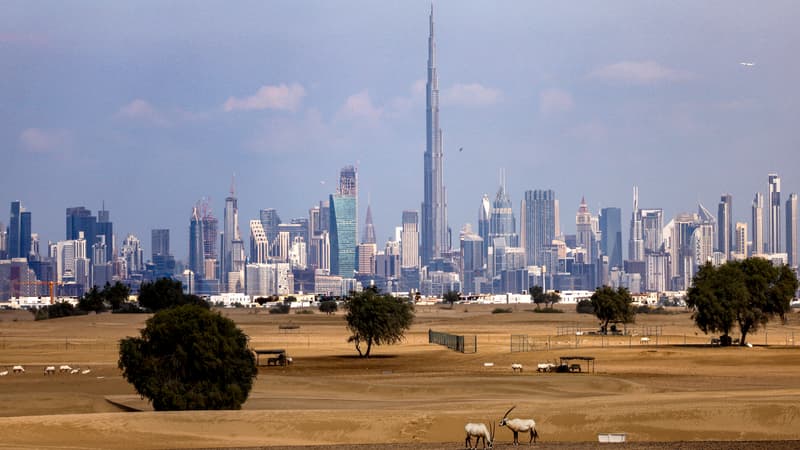Economic activity is expected to accelerate this year in the Middle East and North Africa, but the region is not immune to the climate of uncertainty that the world economy weighs, the International Monetary Fund (IMF) said Thursday. “Growth must always accelerate in 2025 and 2026, but at a much slower pace than expected last October,” the institution said in its regional report published on Thursday.
The IMF now establishes that the economy of the Mena zone increased by 2.6% by 2025 and 3.4% in 2026, against 1.8% in 2024. Customs duties decided by the president of the United States, Donald Trump, will not have a direct impact on the Mena area because “the economic integration between the countries of the region and the United States is limited”, and the energy sector has been affected, the energy sector has been affected East and center of Asia, Jihhhhhhhhhhhhhhhhhhhhhhhhhhhhhhhhhhhhhhhhhhhhhhhhhhhhhh.
But the climate of uncertainty worldwide weighs on investment prospects, financial markets and oil prices, amplifying its downward trend, he added. The growth forecasts in 2025 of the gross exporting countries of the region were reviewed, therefore, they reviewed 1.7 percentage points compared to the previous estimate.
Fragile countries
However, these figures hide significant disparities between different oil countries, especially among those of the Gulf, where growth is 3% planned this year, and Iran and Iraq, which should experience a 1.5% recession in 2025. In countries affected by conflicts, such as Sudan, Yemen and Palestinian territories, perspectives remain dark, especially as international help are rare. “International aid has decreased by 25% since 2021” and the trend should accelerate, threatening the most fragile countries, according to Jihad Azour.
The IMF did not published projections for Lebanon, which had a war between Israel and Hezbollah and a 7.5% recession in 2024, nor for Syria, which comes out of thirteen years of civil war. These countries may experience a recovery linked to reconstruction, but financing needs are very important, said Jihad Azour. According to him, “there is an interest on the part of the Gulf countries to help countries in conflict to rebuild.”
“But it is important that these countries establish the necessary reforms to restore an economic and social balance, and recover confidence,” he added.
Source: BFM TV


